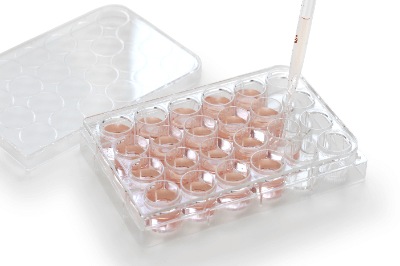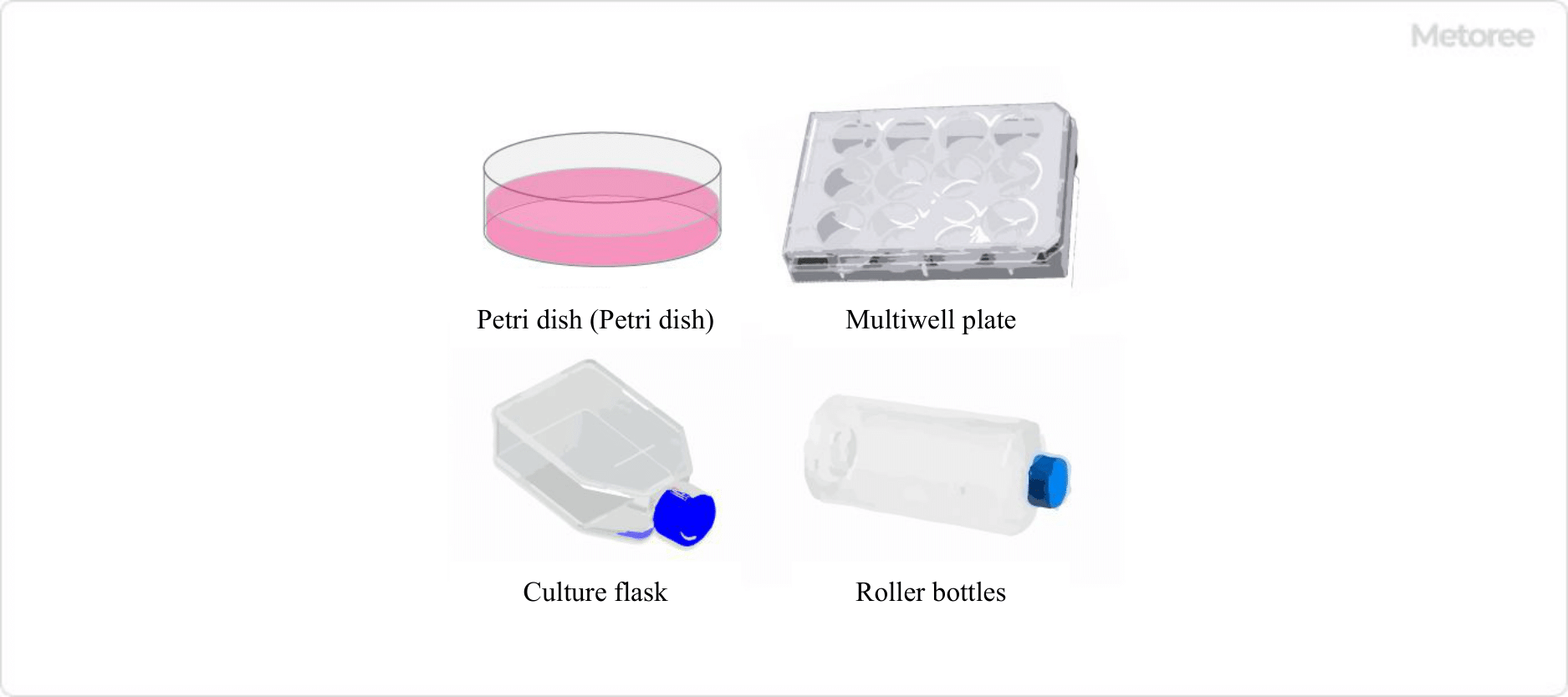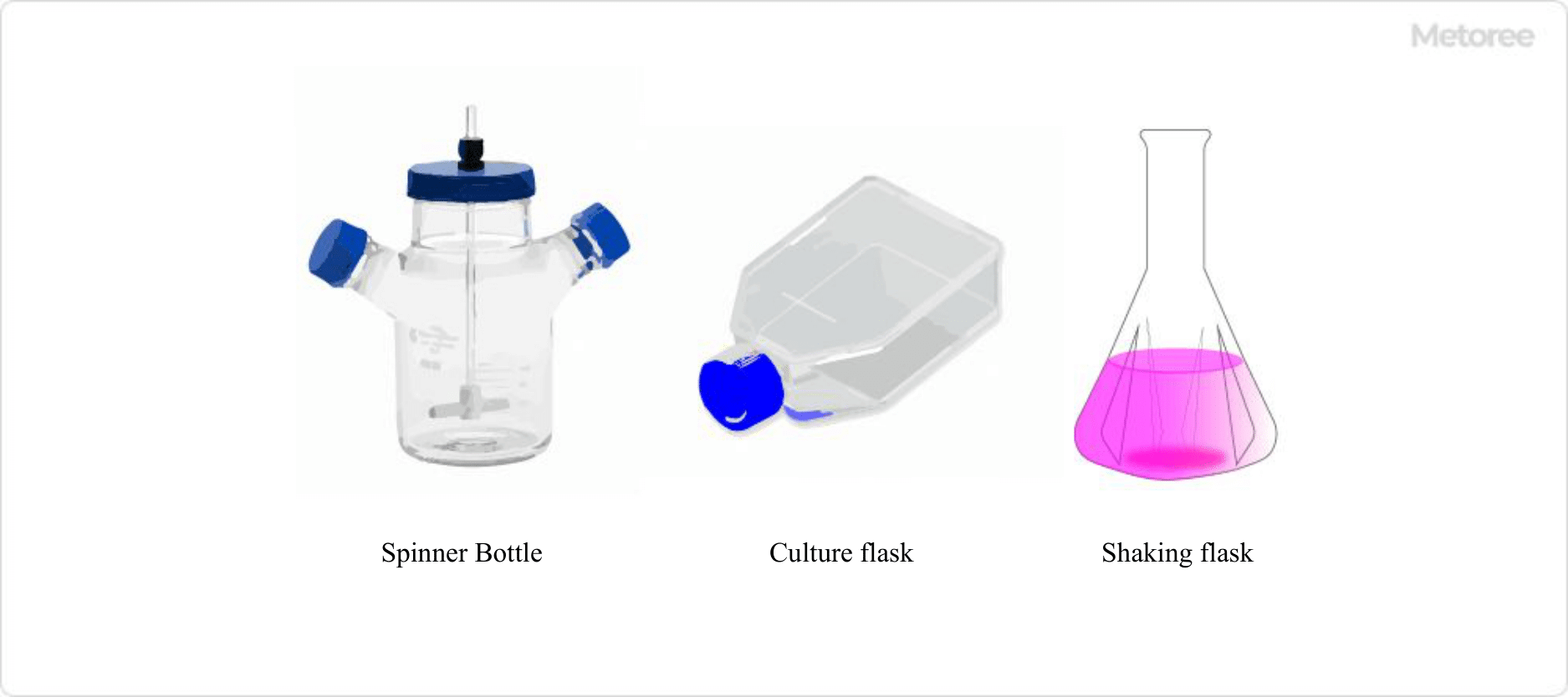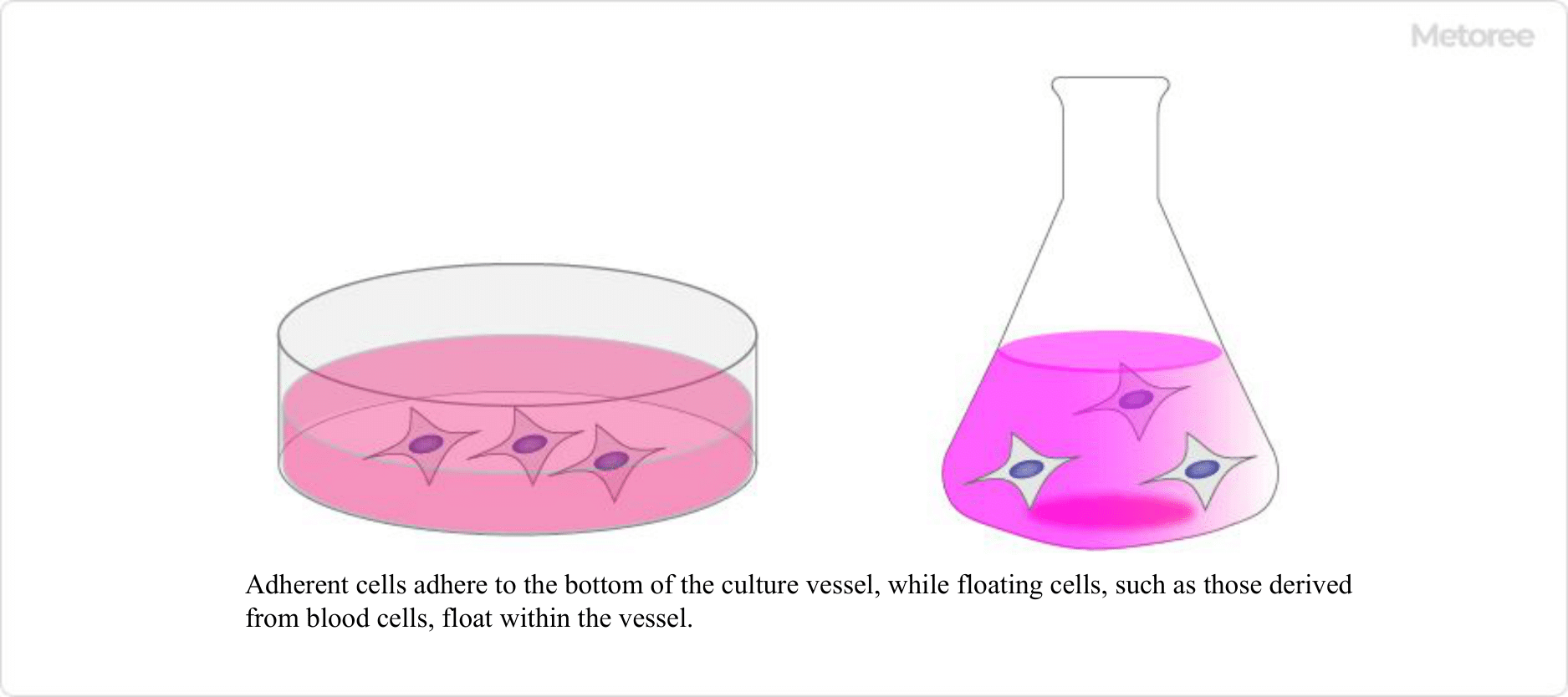All Categories
History












This section provides an overview for cell culture vessels as well as their applications and principles. Also, please take a look at the list of 17 cell culture vessel manufacturers and their company rankings. Here are the top-ranked cell culture vessel companies as of December, 2025: 1.Shengshihengyang, 2.Runlab, 3.LUOYANG FUDAU BIOTECH CO.LTD.
Table of Contents
Categories Related to Cell Culture Vessels
 A cell culture vessel is a vessel used for culturing cells in the life science and drug discovery research and development fields.
A cell culture vessel is a vessel used for culturing cells in the life science and drug discovery research and development fields.
There are several types of culture vessels, such as petri dishes and flasks. The culture surface is uniform and even, providing a clear field of view and making them ideal for observing cultures.
Traditionally, glass culture vessels were the norm, but nowadays disposable cell culture vessels are usually made of polyethylene or other resin materials due to their transparency and ease of processing. Since the surface of the resin remains hydrophobic and has a poor affinity with cells, the surface is made hydrophilic to improve cell adhesion.
In addition, various innovations have been made to meet the needs of each application, such as sterilization and a film structure for the bub that the culture material comes in contact with so that the entire top plate can be removed.
The main purpose of cell culture vessels is to culture adherent cells and floating cells. They are used in various bio-processes in the life science and pharmaceutical fields at all stages, from research and other development stages to manufacturing release.
Cultured cells have many uses and are used by cell biologists and other researchers, including biomaterials scientists and clinicians, as well as regulatory authorities.
Important cell cultures include cell culture in vaccine research and production, among others. The ability to grow large numbers of viruses in cultured cells has led to the use of cell culture technology for the mass production of vaccines against a variety of diseases.
Other applications include protein expression in mammalian cells and culturing cancer cells for cancer research and testing new therapeutic candidates.
Cell culture vessels must meet the following requirements while in use:
To meet these requirements, appropriate materials are selected for cell culture vessels. The culture surface is not only processed to be uniform and smooth, but also treated with hydrophilic treatment and sterilization.

Figure 1. Culture vessel used in adherence culture
Types of cell culture vessels include petri dishes, well plates, and flasks.
The size, shape, coating, and whether the vessel has a lid or not all add up to a very wide variety of products, so it is important to select the appropriate type of cell culture vessel according to the target organisms and application.

Figure 2. Culture vessel used for floating culture
Petri dishes (petri dishes), culture flasks, and multi-well plates are used to culture adhesion cultures, while culture flasks, spinner flasks, and shaking flasks are used to culture suspension cells. In both cases, it is important to use coated or non-adhesive culture vessels for adhesion culture or for suspension culture.
Petri dish-type cell culture vessels are available in diameters of 35 mm, 60 mm, 80 mm, and 90 mm. Most are between 12 and 20 mm in height. Each product has its own unique design for maneuverability, such as non-slip outer rim, and is stackable for storage and culture.
A multi-well plate is a cell culture vessel with multiple depressions, called wells, in a single vessel. Unlike petri dishes, multiple culture conditions can be studied in a single cell culture vessel. 6, 12, 24, 48, and 96-well plates are available, and the size of each well usually decreases as the number of wells increases.
Flask-type cell culture vessels are characterized by their screw caps, which can be easily closed for a closed system culture. Depending on the type of cells, the flask can withstand transportation for about one day by filling the flask with a culture medium and sealing it tightly.
In addition, for efficient mass culture, multilayer type flasks are also used, in which multiple flasks are layered on top of each other. Multi-layered flasks are heavy, and during culture, one must repeatedly inject and discharge culture medium into and out of each layer while supporting the cell culture vessel with one hand. This makes the operating procedure complicated, and the size and weight of the container make it difficult to handle.
Recently, however, a system has been developed to mechanize the culture process using multilayer type flasks and to automatically control a series of operations from culture to observation using a computer. In addition, cell culture vessels for floating cells include spinner flasks with stirring rods and shaking flasks that prevent droplets from rising during shaking.
Some cell culture vessels use cell culture inserts. A cell culture insert is a device that divides a cell culture vessel into upper and lower sections to enable cell culture.
The dividing surface has a structure with a porous membrane filter made of various materials. This means that cells can be exposed to different conditions from both the medium and the gas phase simultaneously.
Adherent cells can be cultured on either the top or bottom of the membrane filter. In addition, cultures of floating cells can be incorporated. More complex cultures, such as co-cultures with multiple cells, can also be accommodated. In addition, gas-liquid interface cultures can be easily performed by adding medium only to the outside of the insert.
This type of culture method is utilized for culturing cells of organs in contact with the outside air, such as the respiratory system, skin, and cornea. In conventional monolayer cell experiments, it is difficult to evaluate lipid-soluble components or powders exposed as they are. However, models using inserts allow evaluation of such substances.

Figure 3. Adherent and floating cells
Cells can be divided into two types: adherent cells, which grow while adhering to a cell culture vessel, and floating cells, which grow while suspended in the culture medium.
The majority of cells derived from spinal cord animals are adherent cells that grow while adhering to tissues, with the exception of some floating cells, such as blood cell-derived cells. Based on the characteristics of the cells, the main types of culture methods are as follows:
1. Static Culture (Monolayer Culture)
This is the usual method of culturing adherent cells in a monolayer by attaching them to a cell culture vessel. Normal cells basically grow in a monolayer. Petri dishes (petri dishes), culture flasks, and multi-well plates are appropriate cell culture vessels.
2. Flotation Culture
Floating culture is a culture method in which floating cells, such as blood cell-derived cells, are grown while suspended in the culture medium. A specialized cell culture vessel coated to prevent cell adhesion is appropriate. Shaking flasks or spinner flasks are used when culturing large quantities of cells.
3. Rotational Culture (Roller Culture)
This is an adhesion culture method in which cells are cultured by gently rotating a roller bottle, which is a specialized cell culture vessel for rotational culture, and then adhering the cells to the inner wall of the bottle.
4. Whirling Culture (Shaking Culture)
This is one of the floating culture methods, in which cells are cultured in a shaking flask while shaking it with a shaker. It is suitable for floating cells such as bacteria, plant cells, and lymphocyte-derived cells.
*Including some distributors, etc.
Sort by Features
Sort by Area


ALine Provides Microfluidic Solutions for the Pharmaceutical, Biotech, IVD, Diagnostic and Point of care markets. We engineer single use consumables that integrate sample prep and detection using biosensors, optical or electroactive sensors. We are experts at the integration of membranes, microfluidic valves, microfluidic pumps and microfluidic mixers located in 13,000 sq.ft., we do rapid prototyping, engineering and manufacture all under one roof. our expert support has lead to over $3.1 billion in follow on funding.

Corning Incorporated, founded in 1851 and headquartered in Corning, New York, is a manufacturer and supplier of specialty glass, ceramics, and optical fiber. Their offerings include optical fiber for long-distance light signal transmission, specialty glass for applications like displays and lighting, ceramics for various uses, such as cookware and medical implants, and advanced materials like 3D printing powders and ceramic matrix composites. Additionally, Corning provides products for the life sciences industry, such as labware, consumables, and analytical instruments.

Eppendorf, founded in 1945 with headquarters in Germany, is a manufacturer and supplier of laboratory equipment, instruments, and consumables. The company's product line includes pipettes, pipette tips, centrifuges, mixers, and ultra-low-temperature equipment. Eppendorf's products are used in academic and commercial research laboratories as well as in the pharmaceutical, biotechnical, chemical, and food industries to perform clinical, environmental, process analysis, and production quality assurance. The company also offers services for liquid, sample, and cell handling in laboratories worldwide.

Corning Incorporated, established in 1851, is a United States manufacturer, specializing in glass science, ceramics, and optical physics to develop products that transform industries. The company’s products serve diverse industries such as consumer electronics, telecommunications, transportation, and life sciences. These include damage-resistant cover glass for smartphones and tablets, connectivity solutions for high-speed communications networks, products that accelerate drug discovery, manufacturing, packaging, and emissions-control products for vehicles. It has a global presence with approximately 61,000 employees worldwide across more than 30 countries. With sustained investment in research and development which has led to a unique combination of material and process innovation.

Thermo Fisher Scientific Inc., founded in 1956 and headquartered in Waltham, Massachusetts, is a manufacturer and supplier of life science solutions, analytical instruments, specialty diagnostics, laboratory products, and biopharma services. Through its brand names, including Invitrogen, Fisher Scientific, Patheon, Applied Biosystems, and Gibco, among others, the company provides a wide range of products, which include chromatography systems, thermal cyclers, automated cell counters, fermenters, and DNA polymerases. The company’s annual revenue is over 40 billion USD, and it serves several fields, including customers working in clinical diagnostic labs, research institutions, hospitals, government agencies, and pharmaceutical/biotech companies.

Panasonic Healthcare was founded in 1969 in Tokyo, Japan as a manufacturer of healthcare devices and services and operates under PHC Holding Corporation. With a strong hold on Diabetes Management, Diagnostics, Life Sciences, and Healthcare Solutions, Panasonic Healthcare is here to adress global needs in energy, food, housing, health, and information technology. Panasonic Healthcare has a capital of 47.0 billion yen and employs approximately 9,374 individuals worldwide as of March 2022. The company's shareholders include KKR (Kohlberg Kravis Roberts & Co. L.P.), Mitsui & Co., Ltd., Life Science Institute, Inc., Panasonic, and L Catterton.

STEMCELL Technologies, founded in 1993 and headquartered in Vancouver, Canada, is a manufacturer of biotechnological products. The company specializes in developing and manufacturing tools and technologies for cell culture, cell separation, and cell analysis. Its products serve the life sciences research community, including areas like cancer research, immunology, and regenerative medicine. The company also engages in advancing scientific research and medical applications. It operates a quality management system in compliance with relevant and current regulatory requirements.

Runlab, headquartered in Zhejiang, China, is a manufacturer and supplier of laboratory plastic consumables. The company offers a diverse range of products, including centrifuge tubes, pipettes, swabs, microscope slides, and storage boxes, in which its products are used in applications, such as clinical diagnostics, research, food safety, environmental testing, and pharmaceutical manufacturing. The company is also ISO 13485:2016 certified and EN14683, and has also received the CE mark for their products.

Colibrys, a joint company established in 2001 and headquartered in Yverdon-les-Bains, Switzerland, is a manufacturer, designer, and supplier of micro-electro-mechanical system sensors and electronic machines. The company offers a wide range of products including mechanical power transmissions, power generation systems, and seismic sensors. These products are used in industries such as aerospace, defense, energy, and transportation. Their products are utilized for various applications including measuring acceleration, inclination, and seismic activity, enabling data collection for various critical applications. The company also offers services such as aerial refueling and air delivery systems.

SARSTEDT AG & Co. KG, founded in Germany, in 1961 is a manufacturer of devices and consumables for medicine and science. The company's product portfolio includes protein analysis reagents, diagnostic equipment, patient monitoring systems, surgical instruments, and rehabilitation aids. Their products are used in industries such as Food and Beverage, Pharmaceutical and Biotechnology, Chemical and Petrochemical, Environmental Testing and healthcare. The company has a national distribution network and a customer and technical support center.

Zhejiang Gongdong Medical Technology Co., Ltd., established in 1985, is a Chinese manufacturer based in Huangyan, Taizhou, Zhejiang, specializing in medical and laboratory consumables. The company offers series of consumables, including vacuum blood collection tubes, cell culture products, disposable laboratory consumables, epidemic prevention products, and pharmaceutical packaging products. Other consumables offered include medical care consumables, and disposable specimen collection containers. The company also produces customized products for original equipment manufacturers (OEMs) and original design manufacturer (ODMs). Some of the company’s notable customers include AS ONE CORPORATION Corning, Inc., IDEXX Laboratories, Inc., Medline Industries, LP, Thermo Fisher Scientific Inc., and McKesson Corporation.

Astim, established in 1980 and headquartered in Kocaeli, Turkey, is a manufacturer and supplier of industrial liquid and gas mechanical equipment and machinery. The company's products include containerized treatment plants, pressurized tanks, and water flow control equipment. These products are used for wastewater treatment systems, water intake structures, and sludge treatment. It welcomes inquiries for custom turnkey systems, and its services include installation and maintenance. It has completed large-scale projects for WTE Germany, Strabag Austria, and Waterleau Belgium.

Nippon Shokubai Co. LTD., established in 1941 and headquartered in Osaka, Japan, is a chemical manufacturer providing diverse chemical materials. Some of its products include detergents, curing agents, heat-resistant resins, adhesives, and coatings for metal, and the products are used in various industries, including life science, ICT, consumer products, environment remediation, and energy. In 1941, the company started the first commercial production of Phthalic Anhydride, which led to the development of the vinyl chloride industry. It commercialized Ethylene Oxide in 1959 using domestic technologies and began mass-producing superabsorbent polymers in 1985.

Wuxi NEST Biotechnology Co., Ltd., founded in 2004, in Jiangsu, China specializes in the manufacture and supply of life sciences consumables. The company’s product portfolio includes cell biology instruments, microbiology instruments, general lab plasticware, medical instruments, and more. These products find applications in cell culture, molecular biology, and diagnostics, catering to research centers, clinical laboratories, academia, and other sectors. NEST exports products to North America, Europe, Asia, and beyond. The company holds ISO 9001, 11137 and 13485 certifications and adheres to CE and FDA standards.
Ranking as of December 2025
Derivation Method| Rank | Company | Click Share |
|---|---|---|
| 1 | Shengshihengyang |
20.4%
|
| 2 | Runlab |
9.3%
|
| 3 | LUOYANG FUDAU BIOTECH CO.LTD |
8.3%
|
| 4 | Gongdong |
6.5%
|
| 5 | NIPPON SHOKUBAI CO., LTD. |
6.5%
|
| 6 | Sumitomo Bakelite Co., Ltd. |
6.5%
|
| 7 | SARSTEDT AG & Co. KG |
5.6%
|
| 8 | STEMCELL Technologies |
4.6%
|
| 9 | Wuxi NEST Biotechnology Co.,Ltd |
4.6%
|
| 10 | Corning |
4.6%
|
Derivation Method
The ranking is calculated based on the click share within the cell culture vessel page as of December 2025. Click share is defined as the total number of clicks for all companies during the period divided by the number of clicks for each company.Number of Employees
Newly Established Company
Company with a History
*Including some distributors, etc.
*Including some distributors, etc.
| Country | Number of Companies | Share (%) |
|---|---|---|
 United States of America
United States of America
|
5 | 35.7% |
 China
China
|
5 | 35.7% |
 Japan
Japan
|
2 | 14.3% |
 Canada
Canada
|
1 | 7.1% |
 Germany
Germany
|
1 | 7.1% |
92 products found - Page 1
92 products - Page 1
Eibis Algae Industry Research Institute Co., Ltd.
850+ people viewing
Ideal for nutritionally enriched feed for rotifers, as well as for other young shellfish and crabs. (Cultivated in seawater and concentrated alive ...
ZEON CORPORATION.
780+ people viewing
Last viewed: 4 hours ago
All Aurora Microplates microplates are made of a high-performance plastic, cycloolefin polymer (COP). Compared to the commonly used polystyrene, th...
Microbio Co., Ltd.
570+ people viewing
Last viewed: 10 hours ago
Anyone can perform reliable microbial testing simply by adding a sample and culturing it. The standard setting is to add 1ml of sample, but you can...
Microbio Co., Ltd.
470+ people viewing
Last viewed: 1 day ago
The standard setting is to add 5ml of sample, but you can add as much as will fit into the test tube. It is advantageous because you can add a larg...
Microbio Co., Ltd.
410+ people viewing
Samples can be added to the desired amount. You can also add solids (meat pieces, beans, flour, wine corks, etc.) as is. ■Standard specifications ...
Microbio Co., Ltd.
340+ people viewing
Last viewed: 9 hours ago
You can easily develop a rapid test kit for any microorganism by using the Sensimedia blank and adding your desired liquid culture medium. Just add...
Microbio Co., Ltd.
450+ people viewing
Last viewed: 19 hours ago
10ml of sample can be added to RO water (A-SML024), soft drink (A-SML024), dialysate (A-SML023), etc. It is also suitable for inspecting mold, etc....
Microbio Co., Ltd.
390+ people viewing
Last viewed: 6 hours ago
■Features - Ideal for pour culture of 1ml sample. ・Test report is attached. ・Easily mix and match. ・Comes with a petri dish with a diameter of 9...
Kouken Co., Ltd.
270+ people viewing
Last viewed: 17 hours ago
FibColl Highly Permeable Atelocollagen Insert for 24well is a new cell culture insert that uses a membrane made only of atelocollagen. Unlike other...
Yagyu Shokai Co., Ltd.
420+ people viewing
Last viewed: 16 hours ago
The φ55mm type is a size suitable for φ47mm membrane filters.
Yagyu Shokai Co., Ltd.
440+ people viewing
Last viewed: 16 hours ago
It has a ribbed outer circumference, so it doesn't fall apart even when stacked. *Sample 1-7484-01 is available.
Yagyu Shokai Co., Ltd.
490+ people viewing
Last viewed: 16 hours ago
Yagyu Shokai Co., Ltd.
520+ people viewing
Last viewed: 16 hours ago
■Features ・The SCL type can be used with automatic dispensers. -Equipped with ribs (non-slip) for easy stacking. *The sample is 6-8663-02.
Yagyu Shokai Co., Ltd.
430+ people viewing
Last viewed: 16 hours ago
■Features ・Petri dish divided into 2, 3, and 4 parts. - Comes with marks for convenient positioning and is also suitable for use with automatic di...
Yagyu Shokai Co., Ltd.
430+ people viewing
Last viewed: 16 hours ago
Comes with ribs (non-slip) for easy stacking. *A sterilization certificate can be issued for each sterilized lot.
Yagyu Shokai Co., Ltd.
270+ people viewing
Last viewed: 15 hours ago
*Inner stopper is not included.
Yagyu Shokai Co., Ltd.
430+ people viewing
Last viewed: 16 hours ago
■Electron-beam sterilized Petri dishes that are easy to hold and have a structure that prevents them from slipping when stacked. - Ribs are attache...
Daiichi Sangyo Co., Ltd.
210+ people viewing
■Essentials for self-imposed hygiene management that support food safety and security Detects invisible bacteria on cutting boards, containers, han...
Japan Micro Co., Ltd.
390+ people viewing
Last viewed: 22 hours ago
We also accept welding repairs. Please feel free to contact us.
Kyodo International, Inc.
450+ people viewing
Last viewed: 9 hours ago
Organ-on-a-Chip, a biofunctional chip developed for constructing in vitro drug discovery models, can easily culture cells and tissues in fluid micr...
Kokugo Co., Ltd.
450+ people viewing
Last viewed: 3 hours ago
Excellent heat, cold, and chemical resistance
Stem Co., Ltd.
320+ people viewing
Last viewed: 1 day ago
■Features ・With 15mm grid ・There are anti-slip ribs on the bottom of the petri dish and the top of the lid. - Same size as other company's square...
Stem Co., Ltd.
320+ people viewing
Last viewed: 22 hours ago
■Summary A hand-shaped petri dish made of electron beam sterilized plastic. Microorganisms on your hands will be cultured and submitted for testing...
Microbio Co., Ltd.
330+ people viewing
■Features - Anaerobic bacteria testing can be performed for each petri dish. - Fully automatic rapid anaerobic bacteria testing is possible with Mi...
Asahiko Trading Co., Ltd.
390+ people viewing
Last viewed: 1 day ago
■Summary The photobioreactor FMT150 features a combination of benchtop cultivator and computer-controlled monitoring equipment. The product line co...
Asahiko Trading Co., Ltd.
330+ people viewing
Last viewed: 5 hours ago
■Summary A large-scale photobioreactor is a system that creates an artificial environment for upscaling the production of photosynthetic microorgan...